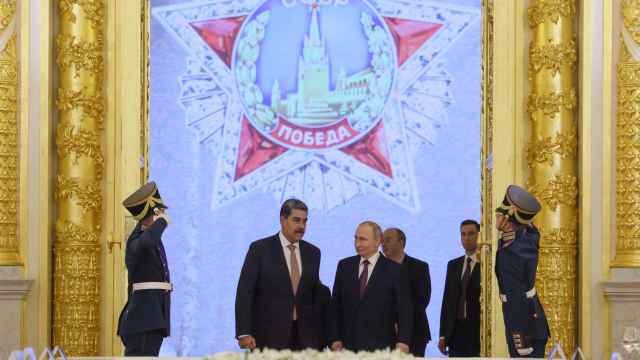If there's anyone among the leaders of the top countries of the world who will wind up in the history books, it is German Chancellor Angela Merkel. Her place in the history books depends on how the situation with Europe and the euro zone will develop, but if everything turns out OK, her role will be huge.
For three years now, she has kept hold of several fragile coalitions in such a way that Europe is moving forward, albeit slowly, not only in terms of the Common Market, but also with regard to taxes and spending.
Let's say everything turns out great and Merkel winds up in those future history books as a true global leader. What will distinguish her from the array of other figures in history textbooks that include Julius Caesar, Queen Elizabeth, George Washington and Napoleon Bonaparte?
Surprisingly enough, it seems to me that Merkel's defiant lack of charisma would be the distinguishing factor.
It would seem that the ability to evoke strong feelings from your own citizens would be a vital trait for a leader. But, as it turns out, that is not the case.
If you look around, it becomes apparent that the phenomenon of uncharismatic leaders is actually more of a rule than an exception. French President Francois Hollande is the embodiment of a leader with no charisma. British Prime Minister David Cameron, despite his eloquent speech, is from the same ranks.
Meanwhile, Italian Prime Minister Mario Monti, a classic technocrat, does not look like a man capable of winning national elections. Nevertheless, he managed to implement more reforms during his short time in power than his predecessor, the charismatic and dynamic Silvio Berlusconi.
In Belgium, the interim government was in power for so long (mainly because of the complications of forming a government of the majority) that politicians actually started to fear the possibility of citizens coming to like having no political leaders at all.
This by no means applies only to Europe. China is successfully led by colorless bureaucrats, and everyone's been used to it for a long time now. But if you look closely, the "Indian miracle" is happening in an era of uncharismatic leaders — and what a stark contrast to the era of Indira and Rajiv Gandhi, the last vibrant leaders. Now Brazil is experimenting with uncharismatic leaders as well.
Conversely, the presence of charisma can at times be a sign that things are not quite right. The most glaring example of this is Venezuelan President Hugo Chavez, although other examples can be found everywhere.
After 20 years of stable development, Hungary elected a strong leader, Viktor Orban, in the post-crisis election in 2010. Almost immediately, the most European of the former Soviet bloc countries began to look like a developing country.
There seems to be a strong pattern. Today, state management requires the ability to carefully balance a multitude of various interests, and it seems that those who are best equipped to do this are not those who are so adept at invigorating and enticing the masses.
Perhaps this is progress.
Konstantin Sonin is professor and vice president at the New Economic School.
A Message from The Moscow Times:
Dear readers,
We are facing unprecedented challenges. Russia's Prosecutor General's Office has designated The Moscow Times as an "undesirable" organization, criminalizing our work and putting our staff at risk of prosecution. This follows our earlier unjust labeling as a "foreign agent."
These actions are direct attempts to silence independent journalism in Russia. The authorities claim our work "discredits the decisions of the Russian leadership." We see things differently: we strive to provide accurate, unbiased reporting on Russia.
We, the journalists of The Moscow Times, refuse to be silenced. But to continue our work, we need your help.
Your support, no matter how small, makes a world of difference. If you can, please support us monthly starting from just $2. It's quick to set up, and every contribution makes a significant impact.
By supporting The Moscow Times, you're defending open, independent journalism in the face of repression. Thank you for standing with us.
Remind me later.





